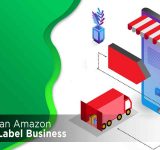- 25/08/2022
- Bo International
Manufacturing a product on your own can be challenging. People who have a dream of making a product on their own often face a dilemma. Especially if you are starting out, things can look very challenging. An amateur who is new to an in-house manufacturing unit has to outsource most of the materials and maybe their assembly to an extent.
Manufacturing cosmetics is definitely not an easy task. It includes a series of processes which are taken care of in three stages viz. control, customization and planning.
What are two types of Manufacturing?
When you outsource manufacturing your product, there are two popular terms you would likely come across. These terms are Contract Manufacturing and Private Label Manufacturing. There is not much clarity concerning these terms. Instead, there exists a lot of confusion. This is because some people use these terms interchangeably. The reason for this confusion might be that the end product for both processes is the same.
Both manufacturing processes result in fine products appreciated by customers. The current industry embraces both styles of manufacturing private label and contract manufacturing. Therefore, it is essential to know the nuanced differences between the two. If you are interested in manufacturing, you must know the difference in services of both styles of manufacturing. In addition, you must understand the delicate intricacies of both approaches. Knowing what the procedures entail helps you make better decisions concerning the manufacture of your skincare products.
This article aims to highlight the differences between private label vs contract manufacturing in cosmetics and skincare products. So if you are interested then read on!
What is Private Labelling?
Private labelling gives an excellent way for companies or individuals aiming to invest in skincare products. This process is a plug-and-play approach to manufacturing with a streamlined method. This style of manufacturing is hassle-free. Companies that are small startups or smaller enterprises often prefer going for Private Labelling. The reason is that opting for private labelling or white labelling products gives them the chance to focus on expanding their company. At the same time, some other companies take care of the part of manufacturing products and marketing them.
Typically, seasoned companies and large enterprises also have some advantages in using this style of manufacturing. However, private labelling does interfere with day-to-day operations. Therefore, these companies can work at their own pace and focus on adding more products to their existing roster. Private labelling or white labelling is quite a unique off-the-shelf approach. This method gives individuals and companies a lot of advantages to relish upon. If you hire a private labelling company, you get access to a ‘turnkey’ process.
In simple words, working alongside a Private Labelling Company, you need not worry about formulation, manufacturing, or packaging. Moreover, introducing the skincare product takes less time with white labelling. The total time period reduces as the product is already ready which makes shipping faster than usual. Companies ghetto relax, literally! You do not have to worry and work yourself up for anything. Private labelling takes care of the entire process. You can work on your company instead and strategize your expansion.
With private labelling, you get cheaper manufacturing solutions. Therefore, they enable even large enterprises to sell their products at lower prices. But, at the same time, they ensure good quality of products.
What is Contract Manufacturing?
Contract manufacturing works in a different way than private labelling. Therefore, implementing this approach in manufacturing skin care products or cosmetics can get a little tricky. First, companies or individuals using this approach must know everything related to it and figure out how it works.
For example, companies need to have their own formulation regarding their products. This is because Contract Manufacturing does not work with white labelling which takes care of everything on its own. But contract manufacturing demands your input as well. You are responsible for coming up with your ideas regarding the formulation, packaging, and outsourcing of every raw material. Everything requires your input from shipping to shelving strategies in launching your product.
The entire process might seem a little overwhelming for amateurs. But it works for companies who have a unique formula for their products. It is true especially if you design your products. Let us assume that you take control of your project. In that case, the company you hire might ask for a larger minimum quantity for item production.
To put it in simple words, the initial investment would be larger than decided. This works for larger enterprises. However, for smaller companies, this might not be the ideal choice. Moreover, starting out for the first time in the skin care industry, you must deliberate before deciding. Some would opine that private labelling is more suitable for smaller companies starting out in cosmetics production.
What are the differences between Private Label vs Contract Manufacturing in Skin Care or Cosmetics Production?
It might be challenging to gather public attention if you are aiming to manufacture and launch a skincare product. Making a product work and ensuring public acceptance is a challenging job.
Opting for private label and contract manufacturing is nothing but an alternative that helps you with this dilemma. Choosing either one gives you opportunities to garner a target population. They strategize how your product would impact the customers. But the question of the hour- then how do they differ? Which is better? Which one should I go for?
But it would be best if you remembered that the bottom line is that both processes have the same outcome. The difference lies in how these two services work.
Advantages of Private Labelling?
‘Turnkey’ is the notable advantage when it comes to private labelling. The streamlined and off-the-shelf approach is what makes white labelling special. These companies acknowledge the responsibilities that companies have related to their business. Therefore, they take care of production and manufacturing on your behalf. Apart from these fundamental advantages, private labelling also serves other functions.
Loyal Customer Base
Any business depends upon the client/customer base. Therefore, not only the number of clients to cater to but also the loyalty of your customers affect the business. A loyal customer base is the foundation of any trustworthy business/company. They put their faith and trust in your products and services. Therefore, they will welcome any product you launch in the market without hesitation.
However, the truth is that customer loyalty does not happen by fluke. It requires strategies and planning. If you wish to build a loyal client base, then hiring a private labelling company is ideal.
Exclusive Products
Products that are different and unique catch the public’s attention to a great extent. Therefore, standing out from contemporary private label products is essential. The cosmetics industry is a competitive arena. So to break through is a challenging job. You must use it to your advantage if you already have a loyal customer base. It would be best if you gave your customers something that feels new and refreshing.
Private labelling companies can help you with that. Starting right from the formulation to its packaging, you can rely upon them to produce something unique.
Higher Profit Margin
Typically, it is true that choosing private labelling brings in larger profit margins in comparison to contract manufacturing. However, not many know the reason behind this fact. Mostly, the initial investment cost is low in private labelling or private label products. Therefore, companies get better control over their projects. You get better control and grow your business by having the opportunity to cover up initial expenses.
These were some of the crucial benefits that private labelling brings to the table. It is up to you and your enterprise if private labelling is the one for you!
Advantages of Contract Manufacturing?
Higher Quality Products
Contract manufacturers possess all the vital resources that can help you produce excellent products. Companies that hire contract manufacturers get a wholesome package. They have a great team of skilled engineers as well as advanced manufacturing resources.They bring to the table tools like CNC machines, etc. With such advanced help, you can expect a functional, efficient and elegant end product. The products would be of course more efficient compared to what you would create yourself.
Cost Reduction
Companies do not have to make additional investments in manufacturing resources and instruments. Whether it is operators, maintenance or product designing, contract manufacturing takes care of it all. Therefore, the overhead costs remain low and lead to a higher return on investment (ROI).
Saving Resources
Being parsimonious is an essential part of any business. Hiring contract manufacturing ensures that aspect. In addition, they help in saving resources in two ways.
- First, they help in reducing waste because they implement lean manufacturing. Overall, the carbon footprint is also less.
- Second, they save working hours. Instead of directing energy toward manufacturing details, company staff can put their effort into branding and marketing.
Reduction of Labour
Manufacturing products on your own is a challenging job. Companies need to hire a large staff, and workers and also outsource materials. Contract manufacturers help you take care of it. They hire their own team. Companies benefit from their colossal staff personnel. They also manage the payroll and other necessities.
Faster Time to Market
Hiring contract manufacturers enable you to get access to advanced manufacturing tools. In addition, they have appropriate experience working with these tools. Therefore, they can create products quickly using these resources. Companies can even launch their products into the market within a few weeks. Therefore, there is no need to worry about deadlines and workload simultaneously. Contract manufacturers got you covered!
Scalability
If you hire contract manufacturers, scalability is another added advantage. They frequently bargain for reasonable pricing on large quantities of raw materials. This helps to keep costs low even as production rises. Thus, if you start out small, you may scale up manufacturing right away without experiencing noticeably higher prices.
Additionally, contract manufacturers maintain a thorough record of your product models and manufacturing preferences. Hence, you can swiftly scale up or down production.
Applicability for small businesses and startups
Contract manufacturing benefits small businesses and startups the most. These businesses frequently lack the resources, budget, and personnel to manufacture products on their own. Contract manufacturers enable them to compete at a lower cost against much larger companies.
End-to-End Services
Some contract manufacturers provide end-to-end services. This means they handle the complete process from beginning to end. They are in charge of manufacturing product design, material purchases, the manufacturing process itself, assembly, packaging, and shipping. The ability to keep the entire operation under one roof cuts expenses and complexity.
Industry-Specific Solutions
Contract manufacturers with extensive experience address critical knowledge gaps. Their expertise allows you to identify a niche and innovative design solutions within your sector. For example, let us assume you want to make a speciality surgical instrument. For example, you can identify a contract manufacturer who has experience creating these types of products for the medical business. Based on their years of experience, the manufacturer will assist you in refining the design.
Conclusion
Private label vs contract manufacturing both enable businesses to bring high-quality items to market. While the private label does not allow the buyer to customise or change the product, contract manufacturing will enable businesses to make products according to their own requirements. In addition, control over the manufacturing process enables firms to adapt to changing market demands. A variety of things will determine a company’s product strategy. Before making a decision, organisations should thoroughly assess their needs.
Many individuals are confused about the distinction between private label and contract manufacturing. However, both production approaches are common in various industries.There is some uncertainty concerning the differences between the two and the benefits and drawbacks of these two manufacturing methods.
Simply put, the end goal of both private label manufacturing vs contract manufacturing is the same: to create exceptional products that consumers will enjoy and purchase frequently.




